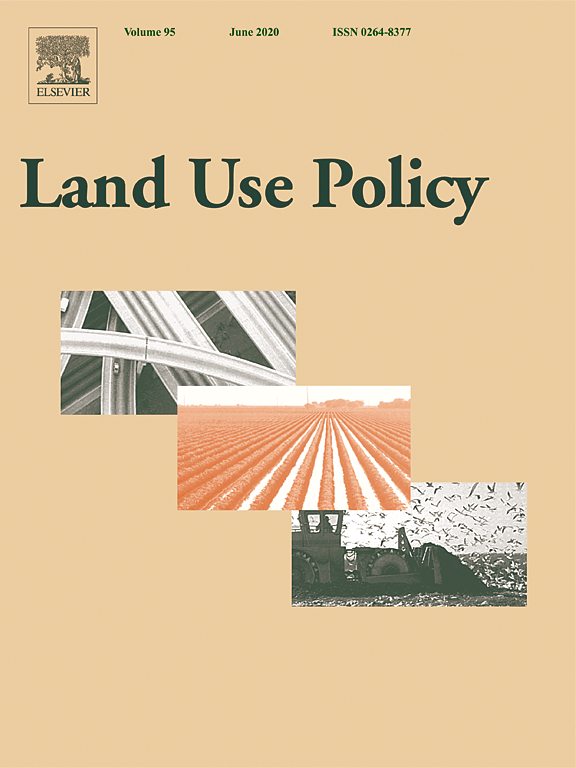Location
Land Use Policy is an international and interdisciplinary journal concerned with the social, economic, political, legal, physical and planning aspects of urban and rural land use. It provides a forum for the exchange of ideas and information from the diverse range of disciplines and interest groups which must be combined to formulate effective land use policies. The journal examines issues in geography, agriculture, forestry, irrigation, environmental conservation, housing, urban development and transport in both developed and developing countries through major refereed articles and shorter viewpoint pieces.
Land Use Policy aims to provide policy guidance to governments and planners and it is also a valuable teaching resource.
ISSN: 0264-8377
Members:
Resources
Displaying 181 - 185 of 279Varieties of agri-environmental schemes in China: A quantitative assessment
Agri-environmental schemes have become an effective policy measure to prompt farmers to protect rural farmland and landscapes. In recent years, 17 provincial governments including Sichuan, Jiangsu, Shanghai, Guangxi and Guangdong have shown increasing interest in promoting local experimentation with agri-environmental schemes.
Bridging funding gaps for climate and sustainable development: Pitfalls, progress and potential of private finance
In a world where natural capital is often unpriced or undervalued, thus making resource exploitation very lucrative, environmentally degrading activities will continue to dominate the economy. The past decade has seen a bourgeoning interest in scaling up private investment to address persistent socioeconomic and environmental challenges globally. The recently formulated sustainable development goals and global climate agenda have further heightened the urgency for a more holistic and integrated conceptualization of transitioning towards a sustainable low-carbon economy.
Green niche actors navigating an opaque opportunity context: Prospects for a sustainable transformation of Ethiopian agriculture
Identifying trajectories of agricultural development that enable substantial increases in food production is of prime importance for food security and human development in Sub-Saharan Africa in general, and Ethiopia in particular. To ensure long-term welfare for people and landscapes, it is imperative that such agricultural transformations sustain and enhance the natural resource base upon which agriculture depends.
Energy crops, the edible oil processing industry and land use paradigms in Romania–An economic analysis
The purpose of this research is to explore the issue of the land used for sunflower and its production as raw material for edible oil processing industry in Romania. The relations between consumption, as main component of demand, and production and import, as sources of supply, on the sunflower oil market are investigated. The case study of the edible oil market is discussed because of the alarming growth in imports after Romania’s accession to the European Union and, furthermore, because of sunflower crop implications on land use in the context of the food vs. fuel competition.
Public-private partnership in enhancing farmers’ adaptation to drought: Insights from the Lujiang Flatland in the Nu River (Upper Salween) valley, China
Agriculture is an important type of land use but suffers from drought, especially under global climate change scenarios. Although government is a major actor in helping farmers to adapt to drought, lack of funds has constrained its efforts. Public-Private Partnership (PPP) mechanism has been widely applied in urban infrastructure development to raise fund for public goods and services, but very few studies explored its role in rural areas.



